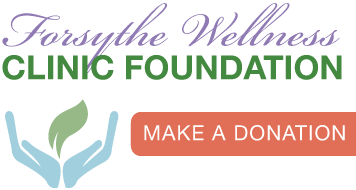When recovering from cancer, most patients focus on diet, exercise, and conventional treatments—but the subtle role of hormones is often overlooked. Hormones act as the body’s internal communication network, influencing energy, immunity, and cellular repair. Cancer treatments can disrupt this delicate balance, leaving survivors fatigued, anxious, or metabolically imbalanced. Understanding and supporting natural hormone restoration can be a powerful, integrative approach to enhance recovery, resilience, and long-term wellness.
How Hormones Influence Recovery
Hormones are more than just reproductive or metabolic regulators—they are the body’s communication system, sending signals that coordinate healing, immune response, and energy management. After cancer treatment, many patients experience subtle imbalances in thyroid, adrenal, and sex hormones that can significantly affect mood, sleep, and tissue repair. These disruptions may not show up on standard tests, yet they influence how the body rebuilds itself at a cellular level. For example, low thyroid function can slow metabolism and reduce energy, while imbalanced cortisol can increase inflammation and hinder recovery. Recognizing the intricate role of hormones in post-treatment healing allows survivors to address these hidden factors and actively support the body’s natural ability to restore balance.
Natural Hormone Balancing for Cancer Recovery
Supporting hormone balance after cancer treatment involves addressing the body as a whole system rather than focusing on single lab numbers. Here are several integrative strategies that are often overlooked but can significantly influence recovery:
- Nutritional Support for Hormone Health
- Focus on whole, nutrient-dense foods rich in phytonutrients, healthy fats, and protein to provide building blocks for hormone production.
- Cruciferous vegetables like broccoli and kale can help the liver metabolize excess estrogen, supporting balance in sex hormones.
- Incorporating omega-3–rich foods such as salmon, chia seeds, and walnuts may reduce inflammation and support adrenal function.
- Targeted Stress Management
- Chronic psychological stress can disrupt cortisol and other adrenal hormones, slowing recovery.
- Mind-body practices like meditation, qigong, and deep breathing can stabilize cortisol patterns and improve energy and sleep quality.
- Regular stress reduction practices also support immune function, which is closely linked to hormone regulation.
- Bio-Oxidative Infusions and Hormone Synergy
- Infusions like ozone or hydrogen peroxide therapies can improve cellular oxygenation, helping endocrine organs function more efficiently.
- This approach may enhance the body’s ability to restore natural hormone balance during recovery.
- Alkaline Water Therapy for Hormonal Equilibrium
- Maintaining a slightly alkaline environment in the body can influence enzymatic pathways involved in hormone synthesis and detoxification.
- Drinking alkaline water may support liver and kidney function, indirectly aiding hormone metabolism and normalization.
- Homeopathic and Nutritional Therapies
- Certain herbal or homeopathic remedies may gently support thyroid, adrenal, and reproductive hormone balance without harsh side effects.
- Adaptogenic herbs like ashwagandha or rhodiola can support adrenal resilience, energy levels, and overall endocrine function.
- Personalized Integrative Approaches
- Genomic-guided hormone assessment can help identify hidden imbalances and guide individualized dietary or supplement strategies.
- Low-dose chemotherapy, when used in combination with supportive therapies, may reduce toxic load on endocrine organs and facilitate natural hormone restoration.
- Lifestyle Considerations
- Adequate sleep, consistent movement, and gentle resistance exercise are essential to maintain metabolic and hormonal equilibrium.
- Avoiding endocrine-disrupting chemicals in household and personal care products can further protect delicate hormone pathways.
These integrative strategies emphasize treating the body holistically, supporting natural repair mechanisms, and creating an internal environment conducive to hormone balance during the recovery process, while also addressing stress, nutrition, and individualized therapy plans tailored to each patient’s unique biological and lifestyle needs.
Integrative Therapies That Support Hormone Health
At Forsythe Cancer Care Center, several integrative therapies specifically support hormone health during cancer recovery. Bio-oxidative infusions enhance cellular oxygenation, which can improve endocrine organ function and aid natural hormone regulation. Alkaline water therapy helps maintain an optimal internal environment for liver and kidney processes that are critical for hormone metabolism. Homeopathic and nutritional therapies provide gentle, targeted support for adrenal, thyroid, and reproductive hormones, addressing subtle imbalances often missed in conventional care. Stress management and lifestyle coaching reduce chronic cortisol disruptions, supporting energy, sleep, and overall hormonal harmony. Low-dose chemotherapy (Insulin Potentiated Therapy) can decrease the toxic burden on hormone-producing organs, allowing the body to restore hormonal balance while continuing recovery.
Precision and Personalization in Hormone Care
Precision in hormone support means tailoring therapies to each patient’s unique biology rather than applying a one-size-fits-all approach. At Forsythe Cancer Care Center, genomic insights and comprehensive testing guide personalized strategies for restoring hormonal balance. This may include identifying subtle hormone deficiencies, sensitivities, or metabolic patterns that conventional labs often overlook. Personalized hormone care also considers the interactions between low-dose chemotherapy, nutritional support, and stress management, ensuring interventions complement each other rather than create imbalance. By integrating these insights, patients receive hormone support designed specifically for their recovery needs, enhancing energy, resilience, and overall well-being while respecting the complexity of their cancer journey.
Long-Term Hormonal Wellness After Treatment
Sustaining hormonal health after cancer treatment is a critical but often overlooked aspect of recovery. Even when conventional tests appear normal, subtle imbalances in adrenal, thyroid, or sex hormones can affect energy, sleep, and immune function. Long-term wellness relies on a combination of ongoing lifestyle practices, targeted nutrition, and integrative therapies such as bio-oxidative infusions or homeopathic support. Stress management remains essential, as chronic cortisol elevation can disrupt hormone balance over time. By monitoring individual hormone patterns and adjusting supportive therapies accordingly, patients can maintain resilience, prevent post-treatment fatigue, and enhance overall well-being, ensuring that recovery extends beyond remission into lasting vitality.
Final Thoughts: Empowering Your Recovery Through Hormone Balance
Balancing hormones naturally plays a vital role in supporting cancer recovery and long-term wellness. By integrating personalized strategies—ranging from nutritional support and stress management to bio-oxidative infusions and homeopathic therapies—patients can restore energy, resilience, and overall vitality. Each person’s recovery journey is unique, making tailored, integrative care essential for optimal hormone health. If you or a loved one are seeking thoughtful, individualized support for hormone balance during or after cancer treatment, contact Forsythe Cancer Care Center. Visit us online or call (877) 789-0707 to schedule an appointment and explore personalized approaches to lasting recovery and well-being.






